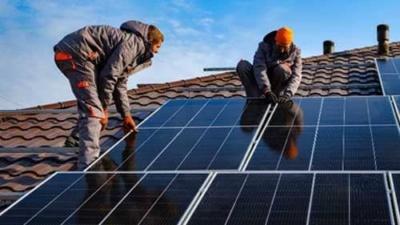Energy/Water Saving Tips
Energy Efficiency

The Climate Emergency Working Party is hosting a Community Energy Event to help the village improve energy efficiency, you can read the announcement here.
Energy UK states the cheapest energy is the energy that we don’t use. Taking steps to improve the energy efficiency of the home is an effective way to save money on fuel bills this winter, and in the long-term.
First port of call is probably the Energy Saving Trust which provides recommendations of how to save money on your energy bills. Various measures include:
- Save energy and water.
- Insulate your home.
- Stop draughts.
- Install low carbon heating.
- Get solar panels.
- Glaze windows and doors.
- Get smart heating control.
Colchester City Council has produced a leaflet to help with both energy and water efficiency measures.
Grants Available

Colchester City Council has announced that Grant funding may be available for improving the energy efficiency of your home using a variety of measures. These could include *:
- Insulation for walls, lofts and heating systems,
- Draught exclusion,
- Changes to windows or doors,
- Renewable energy (e.g. solar panels),
- Clean energy systems (e.g. air source heat pumps).
*Not all of these may be suitable for your property. CCC surveyors will advise which measures can be installed if eligible.
These grants are intended to help low-income households (total income below £31,000), and/or in receipt of a qualifying benefit, and/or people with health conditions exacerbated by the cold, to access grants to improve the energy performance of their home and help them reduce energy bills. These houses must have an energy performance rating D-G.
To find out more visit Colchester City Council’s Energy Grants webpage. You can also call them for advice on 01206 636956.
Other Schemes
- Boiler Upgrade Scheme: Government Grant to replace gas boiler with Air Source Heat Pump OR Biomass Boiler. Up to £6,000.00 available per qualifying household toward costs. You should apply directly at: Apply for the Boiler Upgrade Scheme.
- Other schemes may be available via Better Housing, Better Health (BHBH) Tel: 0800 107 0044 or www.bhbh.org.uk
Practical Guides
There are lots of practical YouTube guides online showing how to achieve better energy efficiency throughout your home, such as 11 easy ways to reduce your heating bills:
Essex County Council have a site called Warm Homes Essex detailing efficiency measures and run a Collective Energy Switching scheme resulting in residents benefiting from the bargaining power of a large group. Once you have registered, they hold an energy auction when suppliers compete for the opportunity to offer you the lowest energy tariff.
Essex homeowners with a household income below £30,000 may be eligible for £10,000 funding through the Sustainable Warmth Scheme. The funding is for making energy-efficient improvements to your home. It was previously called the Green Homes Grant Local Authority Delivery Scheme.
If you are struggling to pay your energy bills please check out Ofgem’s get help if you can’t afford your energy bills. Their site will also show you what schemes, grants or benefits you may be entitled to, as well as covering debt advice.
Insulation
Again, the Energy Saving Trust has a great deal of information on reducing home heat loss through insulation of various types.
Chimneys – When talking about insulation people often forget their chimney which is designed to remove large volumes of warm air from our homes even when there isn’t a fire lit. If it is never used, it can be partially blocked up with either a Chimney Balloon or Chimney Sheep (as featured on BBC’s Country File). Both these websites also give good advice on how to keep your chimney healthy.
Types of Energy
Solar

Solar Together – Essex County Council regularly run ‘Solar Together Essex’, the group-buying scheme for solar panels and battery storage. The scheme is also open to small and medium businesses and small community buildings.
Residents who have already invested in solar panels can also take part by registering for battery storage. Storage enables the unused energy generated by the solar panels to be saved and used whenever it is needed rather than during the day.
It is free to register for a personal recommendation and there is no obligation to go ahead with an installation. The scheme was relaunched early in 2024 and you can register online at Solar Together here.
The Loop Energy app gives you access to your smart meter details while giving tips on how to reduce your energy usage and if Solar or Solar plus Batteries would be appropriate for your property.
Heat Pumps
In 2025, gas boilers will be banned from newly built houses, by 2035, the UK will phase out all gas boiler installations. Heat pumps are becoming known as the alternative, but are they? The Energy Saving Trust have a wealth of information on the various types of heat pumps.
There is a government website which details the grants available for those who wish to apply for the boiler upgrade scheme.
Wood burners
Wood burning might seem a natural form of heating and friendly for the climate, but it certainly isn’t good for one’s health. There is guidance given on the air pollution created by wood burning which is a major source of particulate PM2.5. This has been linked to everything from lung disease, cancers and even dementia. Even the latest Defra registered Eco stoves produce more particulate pollution than road transport. They create 3.1 grams per hour compared to the level by HGVs since 2014 of 0.5 grams. Mums for lungs have free fliers with more details.
Also, to “burn clean” as Defra put it, you need to buy kiln dried wood in sealed plastic bags to achieve this figure. Naturally dried wood from a wood pile will emit even higher amounts of particulate matter. Wood is a form of natural carbon sequestration which is why we are asked to plant trees. If we are chopping down trees for the sole purpose of burning them, we are removing this carbon store. A replacement tree will take several decades to absorb the carbon emitted. Surprisingly burning coal emits more heat for same amount of carbon released. That doesn’t mean to say that burning coal is a particularly good idea.
Water Efficiency
Anglian Water has an interesting “top tips to save the drops quiz”, whilst Essex & Suffolk Water has a calculator on their site so you can work out your water usage and ideas of how to save, such as:
- Turn off taps.
- Shower with less water.
- Save up your dirty clothes for a full wash.
- Reduce food waste.
- Time your garden watering.
- Catch rainwater – it’s free!
- Get a low flush toilet or retrofit a water-saving bag.
- No more washing up! Use a dishwasher on full, if you have one.
- Sustainable and seasonal eating, less water-intense meat & diary.
- Boil only what you need.
- Steam your vegetables, using less water.
- Be plumbing prepared, know where the stop valve is in your house in case of an emergency.

